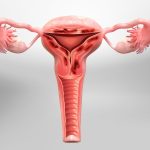Read Time:2 Minute, 34 Second
- What is AATD?
- Alpha-1 antitrypsin deficiency, also known as AATD, or as genetic or inherited emphysema, is a common, inherited genetic condition that can cause chronic lung and liver disease. It can be managed to slow down the progress of the disease.
- Alpha-1 antitrypsin (AAT) is a protein made in the liver and circulated through the blood. It helps protect your lungs and liver from damage.
- If you have a deficiency of AAT protein, you are more at risk of 2 main sets of problems:
- In the lungs, AATD can cause emphysema, which may appear earlier than it might otherwise, as well as asthma, chronic obstructive pulmonary disease and chronic bronchitis.
- In the liver, AATD can cause cirrhosis or scarring of the liver, liver failure and liver cancer.
- AATD can also cause panniculitis, where painful, hardened skin lumps develop.
- How do genes cause AATD?
- Everyone has 2 copies of the gene that makes the liver produce AAT. You get 1 gene from each parent.
- If you receive a normal AAT gene from each parent, all will be well.
- If you get 1 faulty gene and 1 normal one, you will be a carrier for AATD and you might produce less AAT than normal. Most people will get by, but some will develop lung problems if they smoke.
- If you get a faulty gene from each parent, you will almost certainly develop AADT.
- How is AATD diagnosed?
- If your doctor suspects AATD, you may have a physical examination and be asked about your family history. You might see a specialist, and you might be offered genetic counselling and genetic tests.
- For many people with AADT, it can take a long time for the condition to be diagnosed accurately — the symptoms are often put down to other conditions.
- If you have early onset emphysema, or you have parents or close relatives who have been diagnosed with AATD, you might want to get tested to see whether you have the condition too.
- How is AATD treated?
- Currently, there is no cure for AATD. Treatment is based on symptoms. The major goal of AATD treatment is to prevent or slow the progression of lung disease.
- Your doctor might prescribe several medications to treat the lung symptoms, such as antibiotics for infection. Inhaled bronchodilators (puffers to open your airways) can help to relieve the symptoms of emphysema, especially breathlessness.
- You will need to be careful about alcohol, medications and the other things that can affect your liver.
- Alpha-1 replacement or augmentation therapy can be used to treat emphysema symptoms related to AATD and is used under special circumstances. It has been approved for use in Australia, but the cost is not covered by Medicare.
- It is important to get any infections treated as quickly as possible, and to have regular immunisations against flu and pneumonia.
- If your lung or liver damage is severe, you may eventually need a lung or liver transplant or lung reduction surgery.
- If you smoke, it is important to quit to help protect your lungs. Help is available via Quitline on 13 7848.


